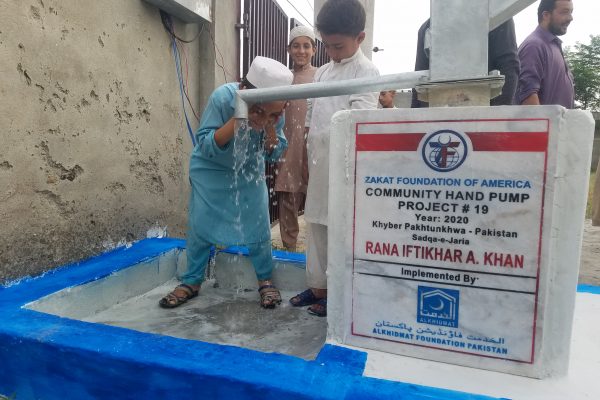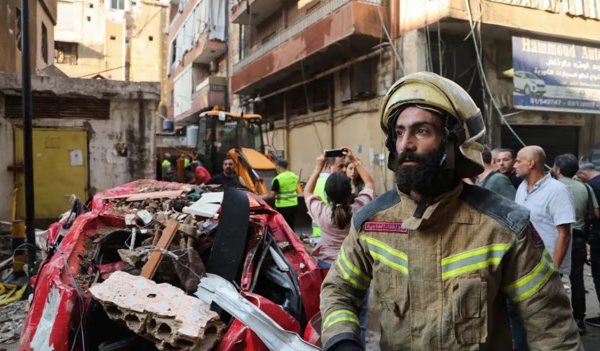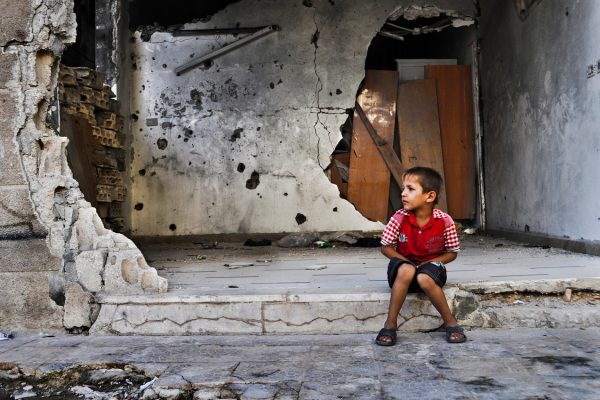I had no concept of just how far people we support in remote villages would walk each day to retrieve water. Girls would be responsible for walking miles each day with containers to retrieve water…and these same girls were deprived of education because their water retrieval was so vital.
I had no concept of just how far people we support in remote villages would walk each day to retrieve water. Girls would be responsible for walking miles each day with containers to retrieve water…and these same girls were deprived of education because their water retrieval was so vital.
I come from a large family and an immigrant community. We stick together.
With such a large community comes the comfort of support and the trial of loss. There was a point this December that I lost three relatives in a week — two of them were just a day apart. These were not my first cousin, my direct uncle nor my grandmother, but they occupied those roles in my mind.
It’s my connection to my community that makes loss difficult, and it’s their solace that has helped me learn to grieve in a healthy way. I’ve had the same thought each time I lost a relative or a friend in the past three years: Can we build a hand pump or a water well in their name?
Islamically, the reason is simple. The only way my relative or friend who has died can continue to add to their scale of good deeds in the afterlife is to give an everlasting charity. Sadaqah jariyah.

Sadaqah on its own equates charity. It can be giving food or money to the needy, just as it can be a smaller-scale good deed, like saying a good word.
But the best of charities in my mind is the one that flows, on and on. And the Prophet Muhammad, on him be peace, said:
“The best one leaves behind after death are three: a righteous child who prays for one, a Sadaqah Jariyah, the rewards of which continue to reach one, and [religious] knowledge that continues to be applied after him” (Ibn Majah).
With that, I’ve made it my goal to raise money for a hand pump or water well whenever someone close to me has died. I give the family time to process their feelings, and I approach them to ask if they want to fundraise for a Sadaqah Jariyah project. We’ve done several since I’ve started at Zakat Foundation of America.
It wasn’t always a natural thought process for me, but it has become one. And it wasn’t until one of my great uncles died that I made an attempt to fund one of these campaigns. I did it because it would help him just as it would help me, but I was confident in my choice to take the initiative because I had seen the beautiful water wells and hand pumps Zakat Foundation has constructed in Mali, Ghana, India, Pakistan, Cambodia and several other countries. I’ve seen the smiles as kids place in fresh-flowing, clean water.
And I had no concept of just how far people we support in remote villages would walk each day to retrieve water before a source was made accessible in their small towns. Girls would be responsible for walking miles each day with containers to retrieve water that they’d have to use for cooking, bathing, and household cleaning. These same girls were deprived of education because their water retrieval was so vital.
Now, they have water wells in their communities, and they have access to both water and education. And I didn’t have to fund these water sources on my own. I crowdfunded in some cases, and in others, I donated in small amounts directly to the Sadaqah Jariyah fund.
I constantly wear a Zakat Foundation of America shirt that reads: “Dirty water kills more people every year than all forms of violence.” I don’t let myself forget that giving water saves lives (which I remind others through the back of that shirt).
Handpumps are the more affordable option at $500, and water wells are $3,000 each. Contributions to the Sadaqah Jariyah fund that are less than these amounts can be used to help other campaigns reach completion.





